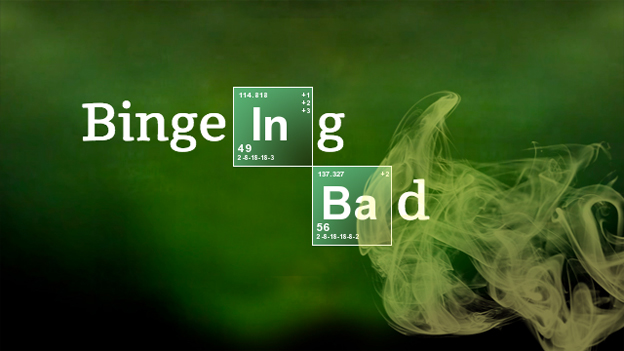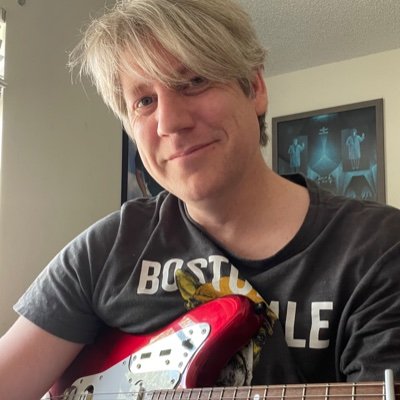The Netflix effect: how binge watching is changing television

With the advent and mass adoption of on-demand portals like Netflix, Lovefilm and Spotify we've all been given the keys to the proverbial Chocolate Factory and boy have we gorged ourselves silly like an insatiable army of Augustus Gloops.
The bold new era of content distribution and technological efficiency has served up entire, original award-winning series series like Netflix' House of Cards and Orange is the New Black for consumption in one sitting, if the viewer desires.
Streaming services have broken down traditional barriers, democratised the best content and empowered the consumer. Quite frankly, we've never had it so good.
But is this instant gratification offered through high-speed internet, Smart TVs and mobile devices really such a Golden Ticket?
Or are we becoming a bunch of spoilt 'don't care how, I want it now' Veruca Salts, whose collective compulsions and sense of entitlement are lessening our appreciation and dumbing down our cultural and emotional responses to great content? And, be honest, was that just one too many Willy Wonka references?
We spoke to television scholars and media psychologists on whether marathon viewing is really enhancing our experience, beyond the buffet. If we can have everything, does everything mean anything?
Emotional battery
"It's like you're punch drunk, and saying 'come on feed me another one,'" Greg Dillon associate professor of psychiatry and public health at Weill Cornell Medical College says, of the effects of binging on modern television drama shows like The Walking Dead and Breaking Bad.
Sign up for breaking news, reviews, opinion, top tech deals, and more.
"Even a single episode has so many highs and lows that by the end of it you're so beaten up, you're less receptive to the emotional and intellectual ideas being put forth. Yet still we click and watch another one."
Often, part of the reason we tend to watch another episode is because some Netflix apps will automatically play the next, making the continuation of the marathon absolutely effortless. Netflix says it's more organic that way – it also means that if you don't do anything the episodes will just keep on coming.
Another reason is because we just can't resist and why would we?
Dillon believes it may be more difficult for bingers to fully appreciate the high quality content in front of them when scoffed down instantly. With more traditional distribution models there is arguably more of an opportunity to let the experience sink in, find an appreciation and look forward to the next part of the journey.
However, there are plenty of advocates for the binge-viewing model, who delight in having the 'entire body of text' at their beck and call.
Like Robert Thompson, for example; the Director of the Bleier Center for Television & Popular Culture at Syracuse University.
"Breaking Bad has become the greatest example of the perfect show for binge viewing, he tells us. "Not only is it okay to binge view a series like that, but it is a better way to watch it.
"You can appreciate so much more, you can catch so much more, you can understand the inner workings of these stories if you view them in more concentrated chunks than you can if you watch them as they come out."
Weekly vs Now
In many ways, however, binge watching is the antithesis to how TV traditionally works. The weekly episodic model is interesting because, rather than being an organic storytelling method (you don't read one chapter of a book a week, right?), it has been the entertainment business's primary means of bring punters back for well over a century – from the Vaudeville variety theatre shows of the 1880s to The Sopranos.
Now, thanks to the advent of high-speed internet and the connected services they've enabled, technology has surpassed the content. You know longer have to buy (usually) expensive boxsets to buck the TV trend – it's all piped straight to your television for a monthly low-cost fee.
Before we scrap the old model forever, though, it would be wise to consider some of the bi-products of that repeat business model; little things like anticipation, excitement, longevity, shared experience and pop culture immortality.
Ask yourself this? Would the global obsession with the Breaking Bad finale have happened been such a cultural event had we watched it like House of Cards?
"Those final eight episodes of Breaking Bad… now that was an extraordinary experience. From the countdown to it coming back from the mid-season break to the anticipation of a new episode on TV each week… wow!" Said Thompson.
"That was just a different kind of buzz that [binge watching] doesn't give you."
Ironically enough, the week-to-week format we enjoyed/endured during our last hours with Jesse and Walt proved to be an anomaly for millions who latched on to the growing buzz and raced through the previous five-and-half-seasons during the 12-month pre-climax hiatus – the binge before the episodic storm.
Many caught up just so they could be part of the ending as it happened, so they could join in on the conversation rather than cover their ears to avoid spoilers.
Breaking Bad, as it turned out, bridged the two eras perfectly, offering a stunning paradox of each distribution model's merits.
"I think Breaking Bad is probably as close as we're going to come to such a universal, cultural televisual event again," said film and television historian and associate professor at UCLA Jonathan Kuntz.
"Now that era is going away, it erodes the heritage of television in many ways," added Deborah Jaramillo, Assistant Professor of Television Studies at Boston University.
"The generation coming up now, all they're going to know is on demand. What pleasure they derive from anything will come from that," she added, "but I think it's nice that these different models are now competing with each other."
Withdrawal and 'the addict vs the connoisseur'
Another factor to consider in the great binge debate is that feeling of withdrawal when we run out of new episodes.
"I did all of Orange is the New Black in one day and it was incredibly pleasurable, but the production schedule doesn't change. Now I have to wait a whole year for the new series," said Deborah Jaramillo.
"The [binge viewing] experience is so good that you feel physically sad that it's over. That sense you had is more attached to it being a great artistic experience," added Robert Thompson.
However, other than cryogenic freezing or a trip to stasis (we've considered it) there's not escaping the agonising wait for the new Game of Thrones season.
The strength of our desire for gratification plays into a debate the psychologists call Connoisseur vs Addict. The former loves to be present in the moment, can savour the engagement and sees how everything ties into a beautiful package. The latter just needs a fix.
For some consumers, Greg Dillon likens the binge viewing experience to traditional drug and alcohol additions, where users chase of a fix.
"An addict is working on a two-pronged schema, which is aspiration and completion. Aspiration is thedopamine-fuelled desire to recapture a feeling," he told TechRadar.
"When you get the completion, it's not about the rush, but ultimately about achieving the aspiration of the completion. When things are that accessible, what happens to the value of the product?"
So, are we really becoming hopeless addicts who're ruining the thrill of television by burning through content so quickly?
While the experts we consulted had their own preference, they all saw merits in both consumption models – ultimately it's up to you whether you are the Charlie or the Augustus of the new Netflix world we live in.
A technology journalist, writer and videographer of many magazines and websites including T3, Gadget Magazine and TechRadar.com. He specializes in applications for smartphones, tablets and handheld devices, with bylines also at The Guardian, WIRED, Trusted Reviews and Wareable. Chris is also the podcast host for The Liverpool Way. As well as tech and football, Chris is a pop-punk fan and enjoys the art of wrasslin'.
